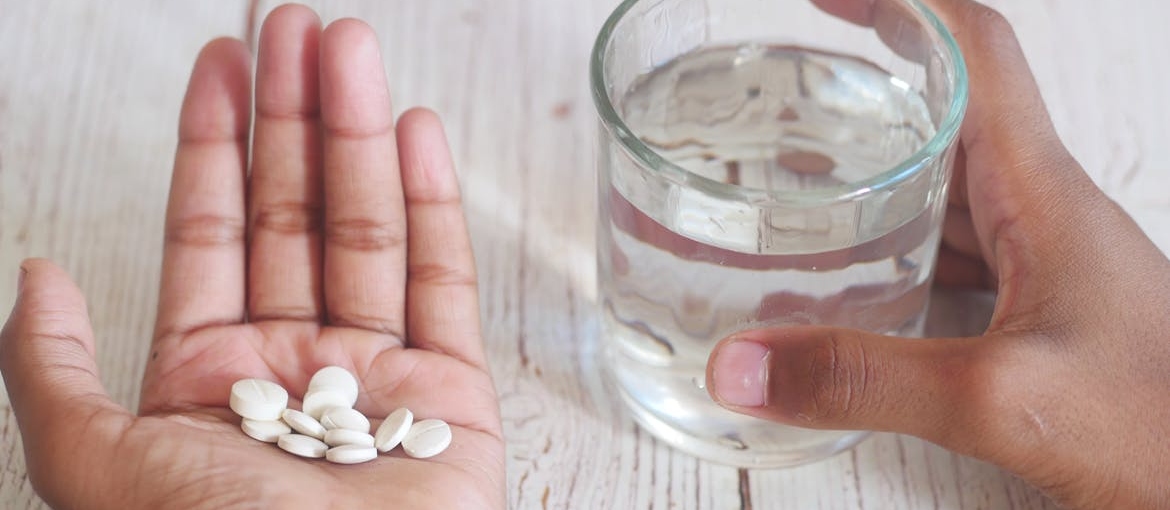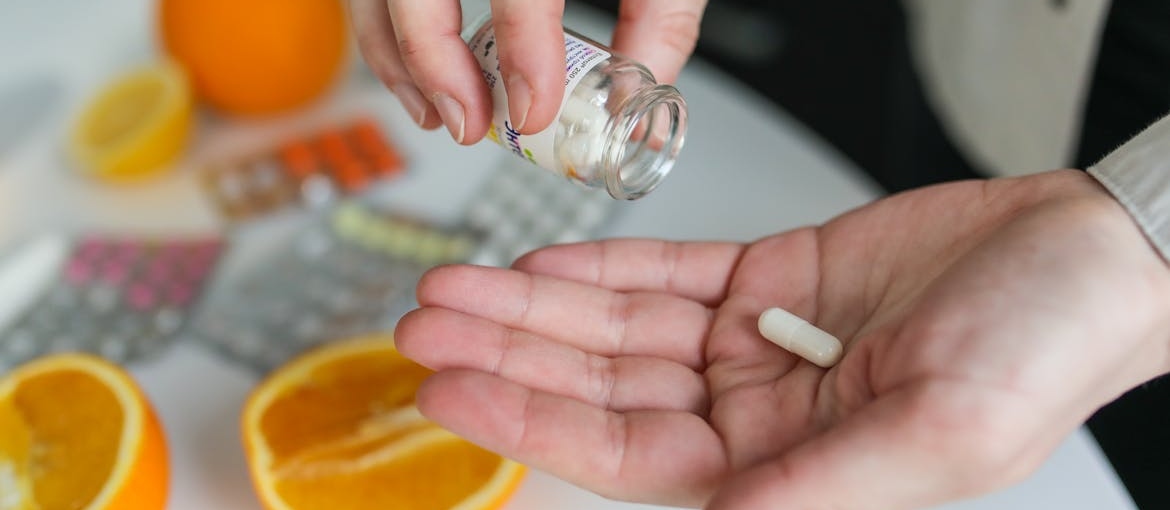Opiate withdrawal can feel overwhelming. You might deal with chills, stomach pain, anxiety, or trouble sleeping. It’s hard to think clearly when your body’s reacting like that. Many people in recovery ask, does gabapentin help with opiate withdrawal? The short answer is—it might. Gabapentin wasn’t made for withdrawal, but doctors sometimes use it to ease symptoms like anxiety or nerve pain. That doesn’t mean it’s safe to try on your own. You need a plan that’s built around your needs, not just another quick fix. A drug and alcohol rehab in West Virginia can help you take that first step without guessing your way through it. This isn’t about being strong or tough. It’s about getting the right support so you don’t feel like you’re doing it alone.
What Is Gabapentin?
If you’re asking does gabapentin help with opiate withdrawal, it helps to know what this drug actually does. Gabapentin affects the way nerves send messages in the brain. It’s mainly used for seizures and nerve pain, but doctors sometimes use it during detox. People often confuse it with opioids, but it isn’t one.

It doesn’t give a high, but it may calm the nervous system. Understanding gabapentin starts with knowing it’s not a cure. It’s a tool that might help with certain symptoms like anxiety, restlessness, or sleep issues. It won’t stop cravings. It won’t replace treatment. But for some people, it helps enough to get through the worst days. That’s why doctors may include it in a detox plan if they feel it’s a safe fit.
Opiate Withdrawal Symptoms and Timeline
Opiate withdrawal doesn’t follow one clear path. Your symptoms and timeline depend on the drugs used, how long you used them, and your health. Some people feel it right away, while others get hit harder on the second or third day. Others may feel symptoms that come and go for weeks. Below, we’ll break it down so you know what to expect early on, what symptoms may linger, and why each case looks different.
Early Withdrawal Signs: What to Expect in the First 24–72 Hours
The first few days of opiate withdrawal can feel intense. Some people ask does gabapentin help with opiate withdrawal during this stage. The answer depends on how your body reacts to withdrawal and what symptoms you feel most. If you’re asking will gabapentin help with withdrawal symptoms, you’re likely dealing with some of the effects listed below:
- Sweating or chills
- Stomach cramps or diarrhea
- Anxiety or panic
- Trouble sleeping
- Muscle aches
- Dilated pupils and watery eyes
- Restlessness

Long-Term Symptoms That Linger After Detox
Once the initial storm has passed, withdrawal still isn’t over. Many people think they’ll feel normal again in a week—but that’s not always true. Lingering symptoms can stick around and affect your daily life. Some call this post-acute withdrawal syndrome (PAWS), but even without the label, the discomfort is real. Knowing how to cope with opiate withdrawals beyond detox can make all the difference. Here’s what some people continue to face after the first phase ends:
- Low energy or fatigue
- Ongoing anxiety or sadness
- Mood swings
- Brain fog
- Sleep problems
- Cravings
- Aches or discomfort
How Symptoms Vary Based on Opioid Type and Use History
Not everyone goes through withdrawal the same way. Your symptoms and how long they last depend on a few things. The type of opioid you used plays a big role. Short-acting opioids like heroin can cause faster, more intense symptoms. Long-acting ones like methadone may bring slower but longer withdrawal. Also, the longer you used, the harder it may hit.
Many people who used opioids for pain ask is gabapentin used to treat opioid addiction or how much gabapentin should I take for opioids. That’s something a doctor should answer directly. If you used opioids with other substances, the effects can be more complex. People in this situation often look for support at an opiate rehab center. These centers can help treat both withdrawal and the issues that come with it.

How Gabapentin May Help With Withdrawal Symptoms
Gabapentin might ease some symptoms of opiate withdrawal. It’s not meant for everyone, but it could help if your body reacts with anxiety, insomnia, or nerve pain. People often ask does gabapentin help with opiate withdrawals when detox feels too intense. For some, the drug takes the edge off just enough to stay on track. It’s especially helpful when combined with other care.
A professional setting like a fentanyl detox center might include gabapentin along with medical monitoring. That way, you’re not guessing what to take or when. Gabapentin works best when doctors decide how to use it, not when someone tries it alone. It’s not about numbing pain completely. It’s about making things bearable so you can focus on getting better, without giving up halfway through detox.
Risks and Side Effects of Using Gabapentin During Detox
Gabapentin isn’t harmless. Even though it’s not an opioid, it can still be misused. If you take too much or mix it with other substances, things can go wrong fast. Some people try to manage detox alone and end up taking unsafe doses. Others assume it’s safe during pregnancy or with mental health meds—it’s not always. At a drug rehab for pregnant women, doctors make sure medications like gabapentin don’t hurt the baby or create more problems. Always ask a doctor before using it. You don’t want to swap one problem for another. Below are possible side effects that some people experience:
- Drowsiness or feeling groggy
- Mood swings or irritability
- Dizziness or balance issues
- Blurry vision
- Swelling in hands or feet
- Trouble speaking clearly
- Memory issues or confusion

Comparing Gabapentin to Other Detox Medications
Gabapentin is just one option. Other medications are more common in standard detox programs. Clonidine helps with anxiety and physical symptoms without causing a high. Suboxone or methadone are used in longer-term treatment. These drugs target opioid receptors directly, while gabapentin works differently. People often wonder how it compares and ask does gabapentin help with opiate withdrawal in the same way those other drugs do.
The answer is no—it supports recovery but doesn’t replace opioids like Suboxone can. Still, it may help when paired with therapy or other care. For those in medication assisted treatment West Virginia programs, gabapentin might be used alongside main medications, not instead of them. It’s not a cure, and it’s not for everyone. But it’s one of the tools doctors may use for support during the harder parts of detox.
Who Should Consider Gabapentin During Detox?
Gabapentin might help, but it’s not right for everyone. It depends on your health, history, and what symptoms you have. If you’re asking does gabapentin help with opiate withdrawal, a doctor needs to look at your full picture first. Some people can benefit a lot, while others may not feel much relief. The drug should only be used under close care, especially in detox or treatment programs. People with certain health issues or risks should avoid it entirely. Here’s who might be considered a good candidate for gabapentin use during detox:
- People with strong anxiety during withdrawal
- Those who can’t sleep and feel restless
- Anyone with nerve pain or body aches
- People without a history of gabapentin misuse
- Patients in monitored detox or inpatient care
- People who haven’t found relief with other medications
Alternatives to Gabapentin for Opiate Withdrawal Relief
Gabapentin helps some people, but it’s not the only option. If you’re unsure does gabapentin help with opiate withdrawal, it’s worth knowing what else is out there. Some prefer other medications with a longer safety record for detox. Others want natural ways to reduce stress or body pain. And some need help deciding where to go—at home or a facility. Below are three areas to explore. These options can give you more choices if gabapentin isn’t right for you.
Other Non-Opioid Medications That May Help
Doctors may suggest other non-opioid medications depending on what symptoms you’re facing. For anxiety or high blood pressure during withdrawal, clonidine is often used. It’s not addictive and works quickly. For stomach issues or nausea, other meds like loperamide or ondansetron can help.
Some people also take medications for sleep or restlessness, but only short-term. You should always ask your doctor before mixing meds or changing dosages. If you’re getting treatment through insurance, ask what’s covered under Humana rehab coverage or your provider. Some plans pay for outpatient detox and non-addictive meds. Gabapentin might be helpful, but it’s not your only option. If it doesn’t work for you, don’t give up. There are other ways to get through this without using opioids again.

Inpatient vs. Outpatient Detox Options
Choosing where to detox matters. Some people want to stay home, others need more help. If you’re not sure, think about how safe you feel, how strong your cravings are, and whether you’ve tried quitting before. Inpatient detox means staying at a center where you get 24/7 support. It’s a good fit if you’ve had bad withdrawals before or if your home isn’t a stable place to recover.
Outpatient detox lets you sleep at home and go to the center for care. It can work if your symptoms are mild and you have people around to support you. You can ask a local alcohol rehab center Clarksburg WV locals swear by or similar center if they also treat opiate addiction. No matter which you choose, you don’t have to do this alone. People care. Help exists. And real recovery starts when you reach out.
Natural and Holistic Approaches to Withdrawal Support
Some people don’t want to rely on medications—or they’ve tried them and still feel stuck. In those cases, natural options might help ease certain symptoms. You still need to listen to your body and be careful. Always check with a professional before trying some of these options:
- Epsom salt baths: Help relax muscles and ease pain
- Light exercise or walking: Boosts mood and energy
- Meditation or deep breathing: Can reduce anxiety
- Hydration: Helps flush your system
- Healthy meals: Supports energy and healing
- Acupuncture: May ease cravings and withdrawal pain
- Massage therapy: Reduces stress and helps with muscle pain

The Role of Gabapentin in a Full Recovery Plan
Gabapentin might help during detox, but it won’t carry you through recovery on its own. It can make things easier in the beginning, but it’s not a long-term fix. People often ask does gabapentin help with opiate withdrawals, and while it may help reduce certain symptoms, healing takes more. You’ll still need therapy, support, and time to rebuild your daily life.
Gabapentin can’t teach you how to handle triggers or rebuild trust. It won’t stop cravings weeks or months down the line. A full recovery plan includes more than meds. You need people around you who know what they’re doing—doctors, counselors, and support groups. Gabapentin has a place in early care, especially during tough detox periods, but real recovery happens through steady work and ongoing support that fits your life.
Final Thoughts: Is Gabapentin Right for You?
If you’re asking does gabapentin help with opiate withdrawal, you’re probably going through a rough time. You’re not alone, and you don’t have to guess your way through this. Gabapentin might ease some symptoms, but it’s not right for everyone. It can have side effects and risks if used without medical support. The best way to know what works for you is to speak with a doctor or detox team. They can help you build a plan that’s safe and based on your health history. Opiate withdrawal is hard, but it doesn’t last forever. With the right support, you can feel better and start moving forward. If you’re ready to get help, now is a good time to talk to someone who understands what you’re facing.



